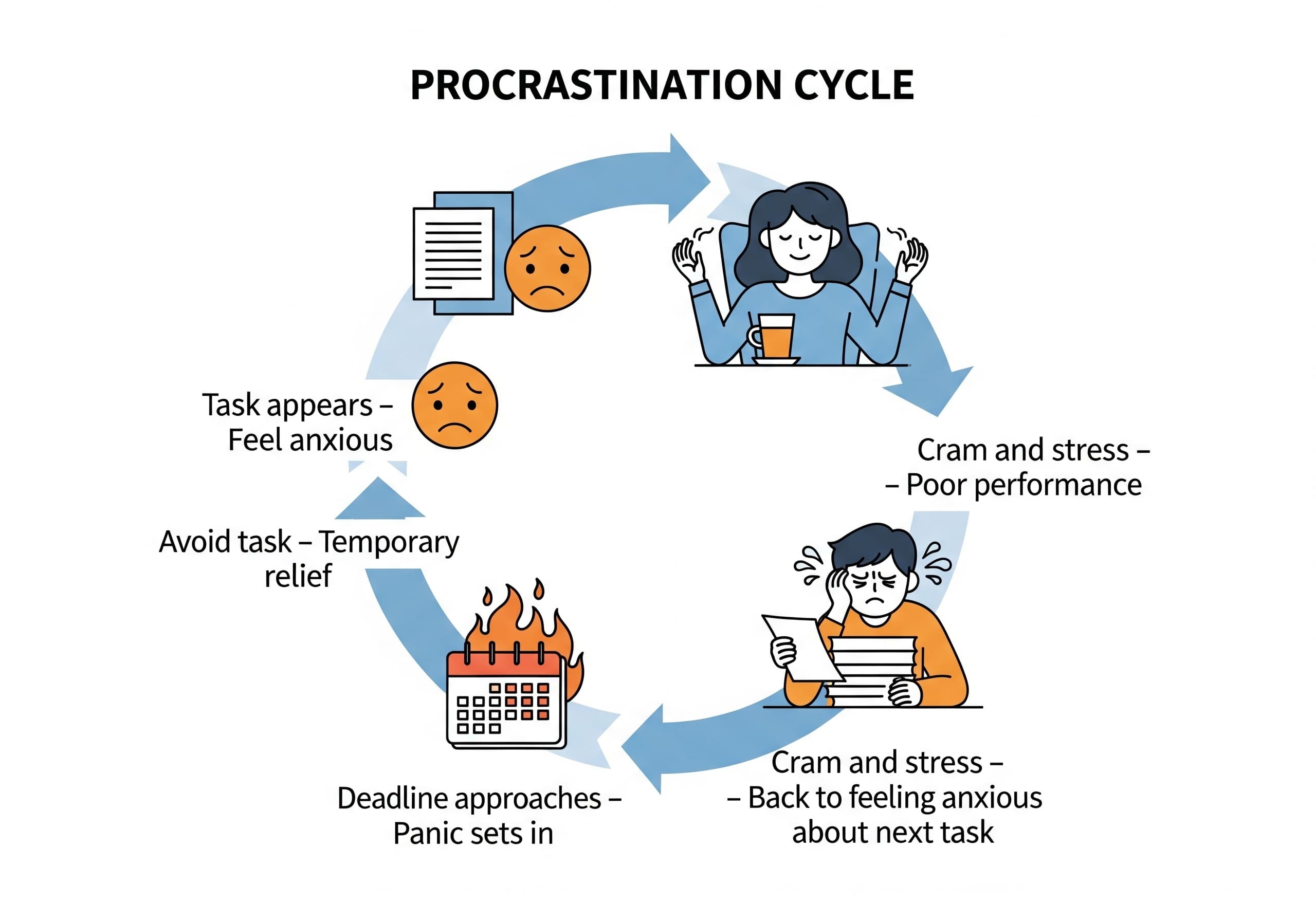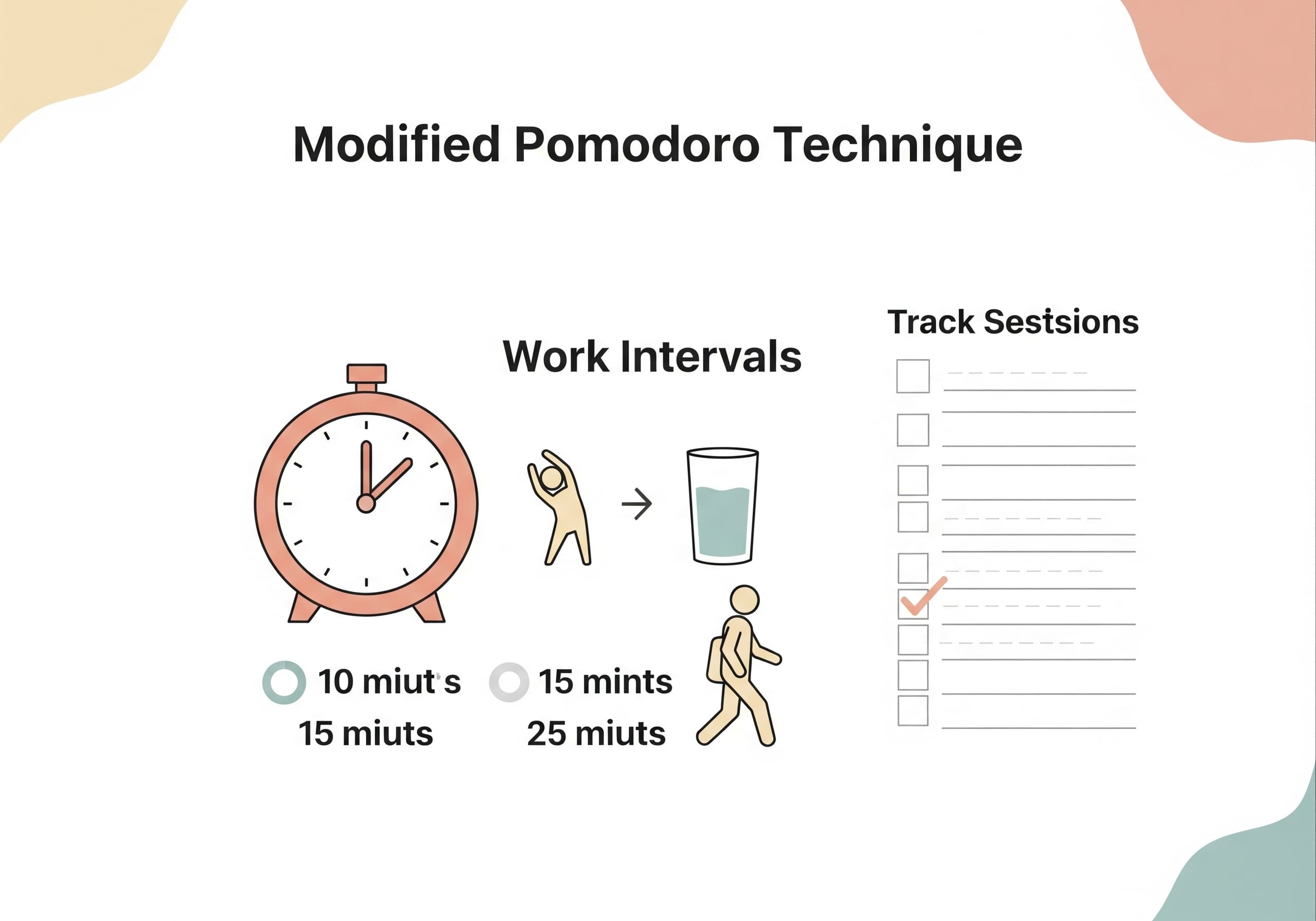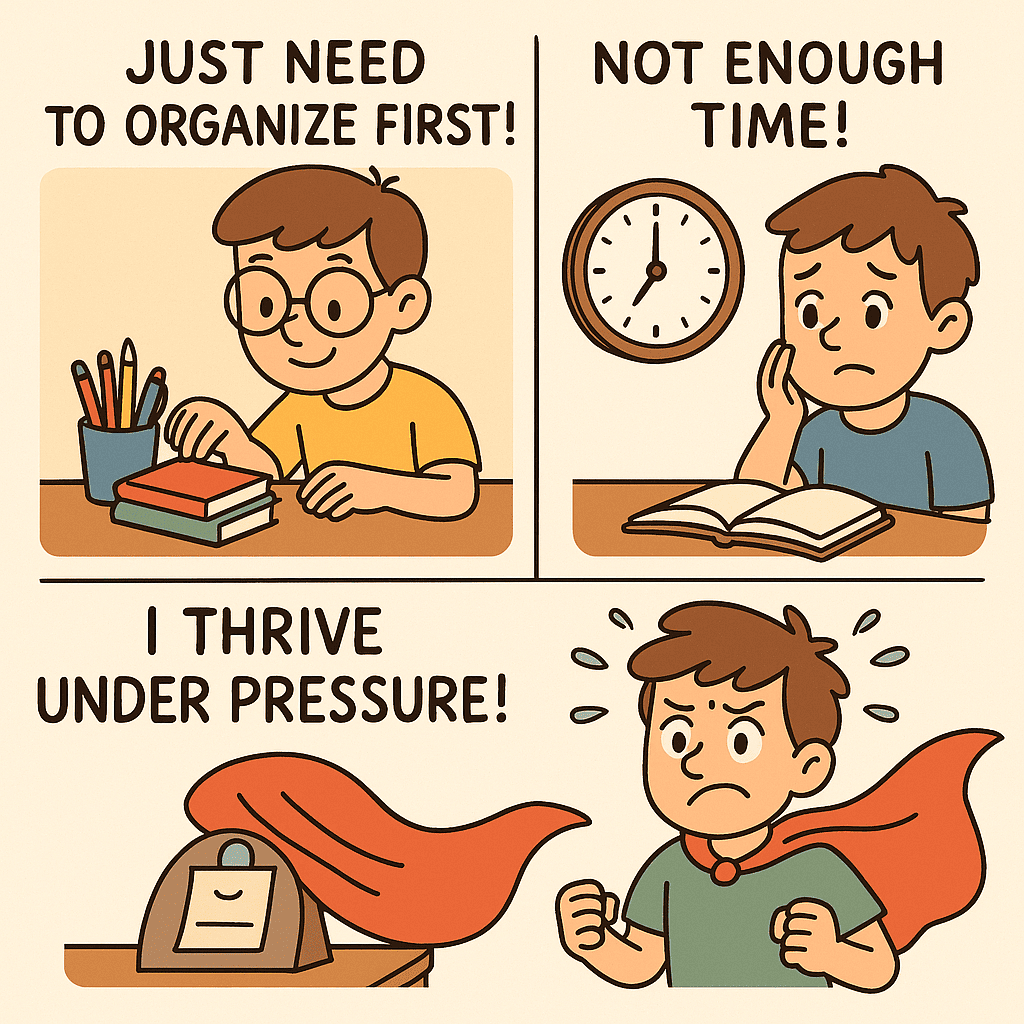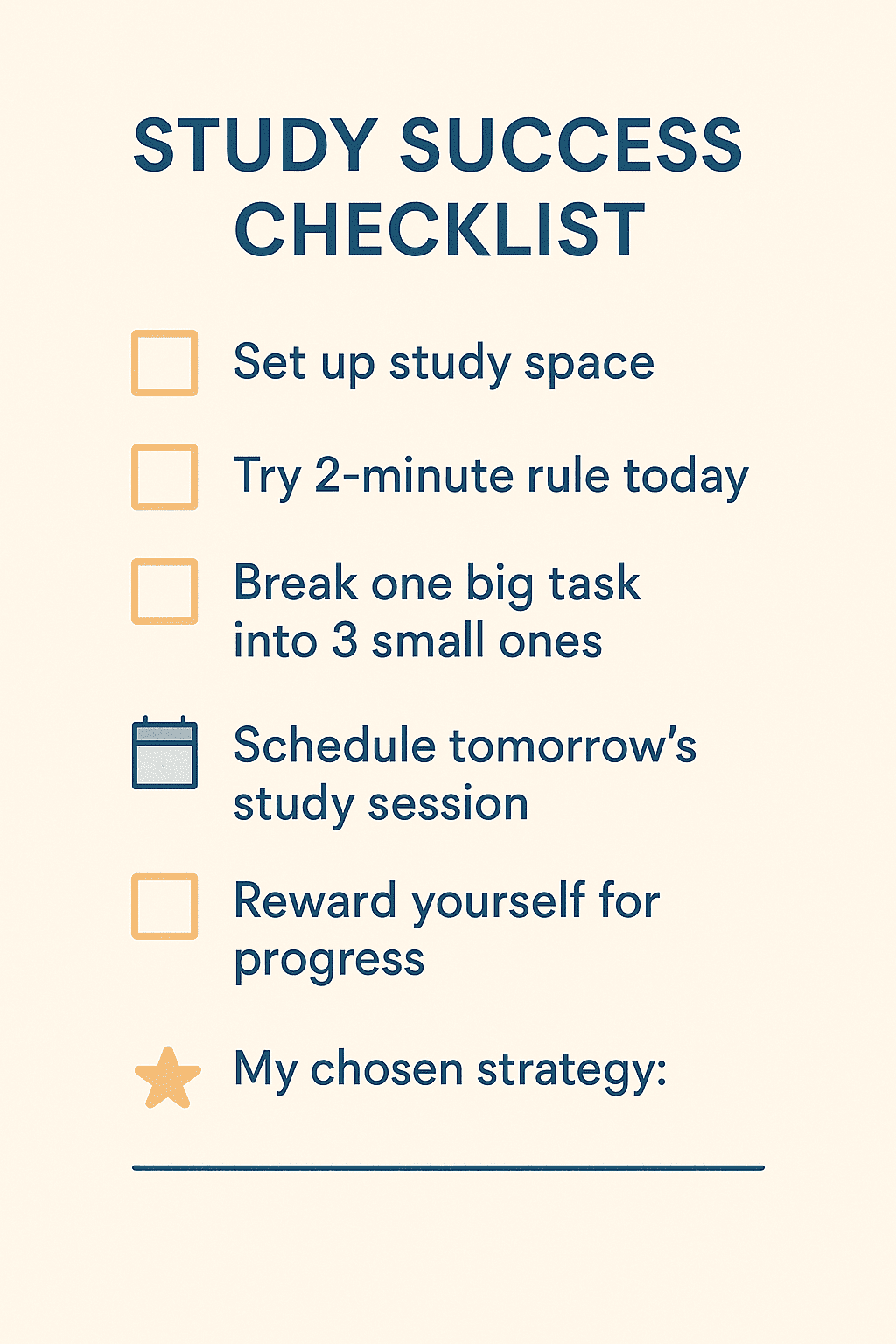Beat the Procrastination Monster: Your Guide to Consistent Study Habits (and Why Your Brain Loves to Wait Until Tomorrow)
Discover science-backed strategies to overcome procrastination and build consistent study habits. Say goodbye to all-nighters and hello to stress-free learning!
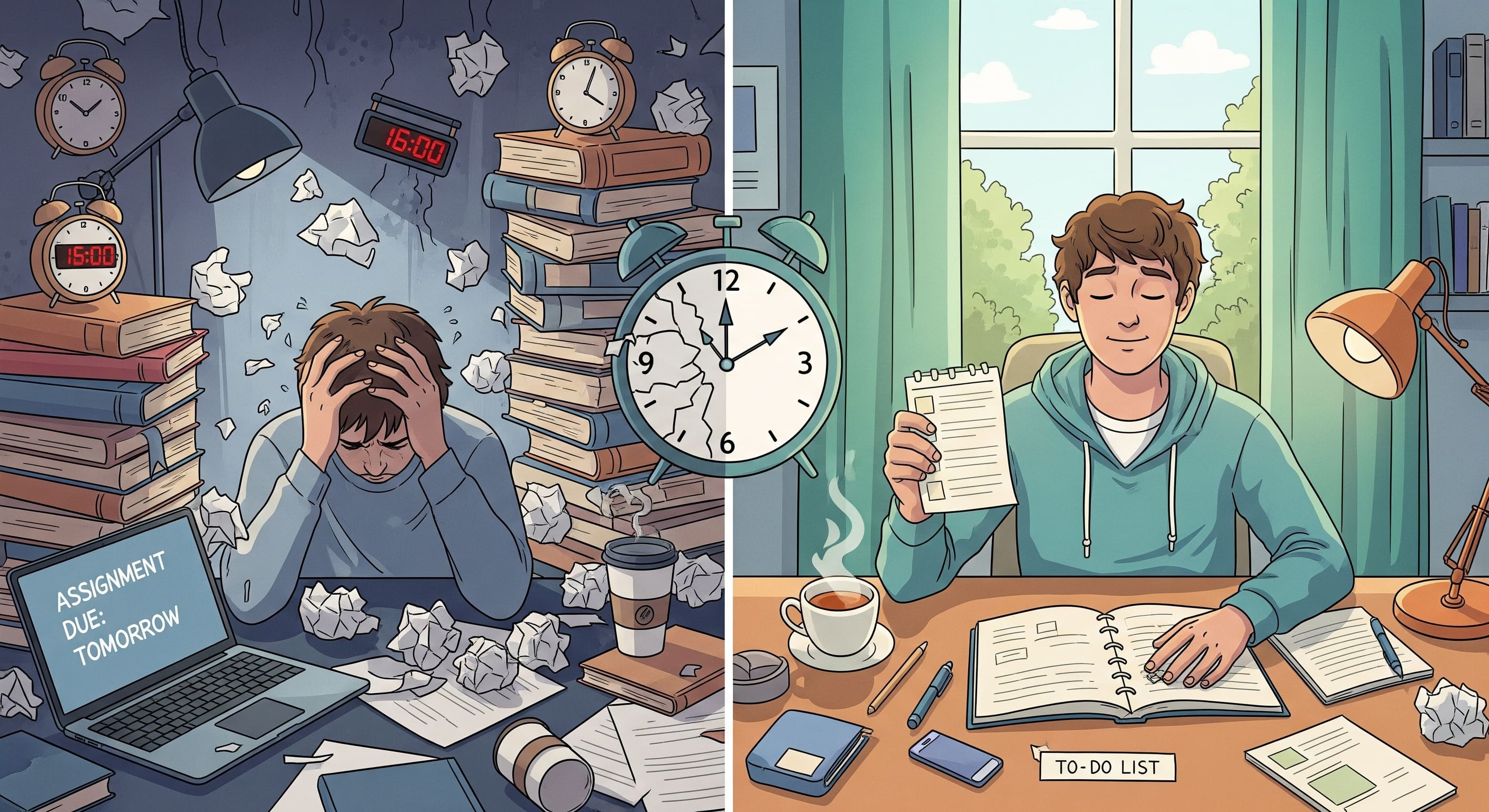
We've all been there. It's 11 PM, your exam is tomorrow morning, and you're staring at a semester's worth of material wondering how you got here... again. Your coffee is cold, your anxiety is hot, and that little voice in your head is asking, "Why didn't I start earlier?"
I used to be the crowned champion of last-minute cramming. My personal record? Learning an entire course worth of organic chemistry in 18 hours (spoiler alert: it didn't go well). But here's the thing – procrastination isn't about being lazy or unmotivated. It's actually your brain trying to protect you from discomfort, and once you understand that, everything changes.
Why Do We Procrastinate? (It's Not What You Think)
Let's get one thing straight: procrastination has nothing to do with your intelligence or potential. Some of the brightest students I know are serial procrastinators. The real culprit? Your brain's emotional regulation system.
When you think about studying, your brain immediately calculates the emotional cost. Boring material? Check. Mental effort required? Check. Possibility of feeling confused or inadequate? Double check. Your brain, being the protective friend it is, decides to spare you this discomfort by suggesting literally anything else.
The Science Behind the Struggle
Research from Dr. Tim Pychyl at Carleton University shows that procrastination is primarily an emotion regulation problem, not a time management issue. When we procrastinate, we're not avoiding the task – we're avoiding the negative emotions we associate with it.
Think about it: When was the last time you procrastinated on something fun? Exactly.
The Hidden Costs of Cramming (Beyond Just Bad Grades)
Before we dive into solutions, let's talk about why changing this pattern matters. Sure, cramming might help you pass, but at what cost?
What Cramming Really Does to Your Brain
- Memory Formation Suffers: Your brain needs time to consolidate information. Cramming is like trying to download a movie on dial-up internet – technically possible, but painfully inefficient.
- Stress Hormones Go Haywire: Cortisol levels spike during cramming sessions, which actually impairs your ability to recall information. It's like your brain puts up a "closed for stress" sign right when you need it most.
- Sleep Deprivation Compounds the Problem: All-nighters don't just make you tired; they literally prevent your brain from forming long-term memories. Those facts you stayed up memorizing? Your sleep-deprived brain treats them like spam emails and deletes them.
Breaking Free: Practical Strategies That Actually Work
Now for the good stuff – let's talk solutions. These aren't your typical "just be more disciplined" tips. These are real, psychology-backed strategies that work with your brain, not against it.
1. The Two-Minute Trick (Your Gateway Drug to Productivity)
Here's my favorite starting point: commit to just two minutes. That's it. Tell yourself you'll study for exactly two minutes, then you can stop guilt-free.
Why it works: Starting is the hardest part. Once you begin, you'll often find yourself continuing past the two-minute mark. But even if you don't, you've still broken the ice with your material.
I discovered this trick during my junior year, and it transformed my study habits. What started as "I'll just review my notes for two minutes" often turned into productive 45-minute sessions.
2. Environment Design: Set Yourself Up for Success
Your environment shapes your behavior more than willpower ever could. Here's how to optimize yours:
- Create a dedicated study space: Even if it's just a corner of your room, make it study-only territory
- Remove friction: Keep your materials organized and easily accessible
- Add positive triggers: Maybe it's a specific playlist, a certain type of tea, or your favorite desk lamp
Remember: If you have to hunt for your textbook under a pile of laundry, you're adding unnecessary barriers.
3. The Pomodoro Technique (With a Twist)
You've probably heard of the Pomodoro Technique – 25 minutes of work, 5-minute break. But here's my modification that makes it even better:
- Start with shorter intervals: If 25 minutes feels daunting, begin with 10 or 15
- Use your breaks wisely: Stand up, stretch, or do something completely different
- Track your Pomodoros: Seeing those completed sessions adds up to serious motivation
4. Transform Your Material (This Is Where It Gets Fun)
One of the biggest reasons we procrastinate is because studying feels passive and boring. But what if it didn't have to be?
This is where active learning comes in. Instead of just reading your notes for the hundredth time, try:
- Creating practice questions: Turn key concepts into quiz questions
- Teaching the material: Explain it to your rubber duck, your roommate, or your cat
- Making connections: Link new information to things you already know
This is actually where tools like StudyLab come in handy. When you can instantly transform your notes into interactive quizzes, you're not just reading – you're actively engaging with the material. It's like turning studying from watching paint dry into playing a game where you level up your knowledge.
5. The Power of Micro-Commitments
Big goals are procrastination fuel. "Study for finals" is overwhelming. But "review Chapter 3 definitions"? That's doable.
Break everything down into the smallest possible chunks:
- Instead of "write essay," try "write thesis statement"
- Instead of "study chemistry," try "solve 5 practice problems"
- Instead of "read textbook," try "read pages 45-50"
Have you ever noticed how checking off small tasks feels surprisingly good? That's your brain's reward system at work – use it to your advantage.
Common Procrastination Traps (And How to Avoid Them)
Let's address the sneaky ways procrastination disguises itself as productivity:
The "Perfect Conditions" Trap
"I'll start studying once I clean my room/find the perfect playlist/buy new highlighters..."
Sound familiar? This is productive procrastination – doing less important tasks to avoid the main one. The truth? Conditions will never be perfect. Start anyway.
The "All or Nothing" Mindset
"Well, I only have 30 minutes, so there's no point starting now."
This thinking assumes that unless you can dedicate hours to studying, it's not worth doing. Reality check: 30 minutes of focused study beats 0 minutes every single time.
The "I Work Better Under Pressure" Myth
Some people genuinely believe they perform better when cramming. But research consistently shows this is false. What you're actually good at is performing under pressure despite the handicap of inadequate preparation. Imagine how well you'd do with both preparation AND the ability to handle pressure.
Building Your Personal Anti-Procrastination System
Here's where we put it all together. Creating a system that works for you is like building a custom suit – it needs to fit your life, not someone else's.
Step 1: Identify Your Procrastination Triggers
For the next week, notice when you procrastinate and ask yourself:
- What emotion am I trying to avoid?
- What story am I telling myself?
- What would make this task feel less threatening?
Step 2: Create Your Study Ritual
Develop a consistent pre-study routine that signals to your brain it's time to focus:
- Clear your workspace
- Prepare your materials
- Set a specific goal for the session
- Start with something easy to build momentum
Step 3: Use Technology to Your Advantage
Let's be honest – we're going to use our devices anyway, so why not make them work for us?
This is where smart study tools become game-changers. For instance, when you upload your notes to StudyLab and instantly get practice questions, you're removing the friction between having material and actually studying it. No more "I should make flashcards" – they're already there, waiting for you.
Step 4: Track and Celebrate Progress
Keep a simple log of your study sessions. Nothing fancy – just date, subject, and time spent. Watching those entries accumulate is surprisingly motivating.
Remember to celebrate small wins. Studied for 20 minutes instead of cramming all night? That's progress worth acknowledging.
When Setbacks Happen (Because They Will)
Let's be real – you're going to slip up sometimes. You'll find yourself cramming again, and that's okay. Progress isn't linear.
When you catch yourself procrastinating:
- Don't spiral into self-blame: It only makes things worse
- Get curious, not critical: Ask "What can I learn from this?"
- Start small to get back on track: Remember the two-minute rule
- Adjust your system: Maybe something needs tweaking
I still occasionally find myself in late-night study sessions, but now they're the exception, not the rule. And when they happen, I know exactly how to get back to my better habits.
Your Next Steps: From Reading to Doing
Knowledge without action is just procrastination in disguise. So here's your homework (the fun kind):
- Choose ONE strategy from this post – just one to start
- Try it for the next three days – that's all, just three days
- Notice what happens – both the good and the challenging
Want to make it even easier? If you have notes or study materials lying around, why not transform them into something more engaging? Upload them to StudyLab and see how turning passive content into active quizzes changes your study game. It's free to try, and you might just find that studying becomes something you (dare I say it?) actually want to do.
The Bottom Line: You've Got This
Overcoming procrastination isn't about becoming a different person or developing superhuman discipline. It's about understanding how your brain works and creating systems that work with it, not against it.
Every time you choose to start studying a little earlier, you're literally rewiring your brain. Every quiz you take, every concept you review, every small step forward – it all adds up to something bigger: a version of you who feels confident and prepared instead of stressed and behind.
